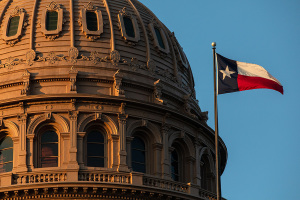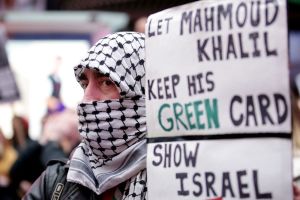Religious freedom getting worse around the world; Christians remain most persecuted group: Pew

Government restrictions on religion have increased across the globe — and Christians and Muslims are persecuted in more countries than any other religious group, Pew Research Center has found.
Pew's report, titled "A Closer Look at How Religious Restrictions Have Risen Around the World," covered a 10-year span, from 2007 to 2017, and studied 198 countries.
The study, released Monday, reveals that Christians are the most-harassed religious group in the world, facing persecution in 143 countries. Muslims are not far behind, with reports of religious persecution in 140 countries in 2017. Jews, the third-most targeted group, were persecuted in 87 countries.
“Over the decade from 2007 to 2017, government restrictions on religion—laws, policies and actions by state officials that restrict religious beliefs and practices—increased markedly around the world,” stated the researchers. “And social hostilities involving religion—including violence and harassment by private individuals, organizations or groups—also have risen since 2007.”
Unsurprisingly, Christians and Muslims suffered the most harassment in the Middle East-North Africa region, while the Asia-Pacific region showed the second-highest levels of Christian persecution. The number of highly-populated countries, like China and Russia, that impose "high" or "very high" levels of restriction rose from 40 to 52 over the decade.
But government restrictions on religion have also increased in democracies: Overall, Europe saw the biggest increase in restrictions, with its score doubling over the decade of the study.
Pew found that a growing number of European countries have placed restrictions on religious dress, while countries like Spain have restricted public preaching and proselytizing by various religious groups.
While the Americas was the region with the fewest restrictions and hostilities, government limits on religious activities still saw a significant increase. Over the period of the study, the number of countries in the Americas with government restrictions on religious activities jumped from 16 to 28.
The U.S. score on hostilities related to religious norms, which had been 0.0 in 2007, increased to 4.0 by 2017.
The report noted, "The U.S. also ranked among the highest-scoring countries in this category (individual and social group harassment) in 2017, in part because of the 'Unite the Right' rally in Charlottesville, Virginia, where white supremacists were protesting the removal of a Confederate statue from a park. Protesters expressed anti-Semitic and racist sentiments, displaying swastika flags and chanting 'Jews will not replace us!'"
Overall, countries with the highest levels of restrictions were China, Iran, Russia, Egypt and Indonesia. Countries with the lowest levels were South Africa, Japan, the Phillippines, Brazil and South Korea. According to Pew, in only 26 countries (13%) are all religious groups “generally treated the same.”
The Pew report came as the U.S. State Department hosted a three-day Ministerial to Advance Religious Freedom in Washington, D.C. Attended by government officials, religious leaders, and other participants from regions around the world, the summit was touted as the largest of its kind ever held.
On Tuesday, Shaan Taseer, the son of Punjab governor Salmaan Taseer who was assassinated in 2011 because of his support for imprisoned Christian mother Asia Bibi, urged religious freedom advocates to continue fighting for those oppressed for their faith in countries like Pakistan, where strict blasphemy laws are used to target religious minorities.
“[We] must be mindful of the challenges ahead,” he stressed. “While Asia Bibi — the world’s most famous prisoner victim of blasphemy is a free woman — I want you all to know that there are 200 Asia Bibis in jail accused of blasphemy law in Pakistan today and these are only the reported cases.”
Taseer also challenged U.S. Ambassador-at-Large for International Religious Freedom Sam Brownback to press Pakistan Prime Minister Imran Khan during his state visit to the U.S. next week about the country’s restrictive blasphemy laws.
“The troops of history will march on and I have no doubt that the blasphemy laws of Pakistan, like the Jim Crow laws, the Apartheid laws of South Africa, like the Nuremberg laws of Nazi Germany, will take their rightful place in the dustbin of human history,” he stressed. ”When that day comes and I hope it will be in my lifetime, we may want to ask us what we did to help those who suffered under this law.”




























